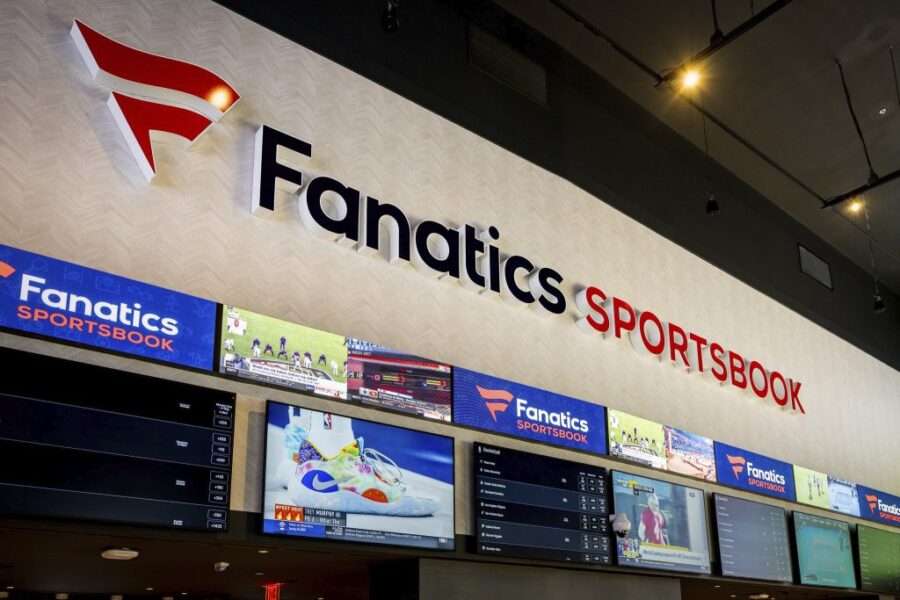Fanatics confirms entry into prediction markets with Crypto.com

Sportsbook operator Fanatics has confirmed that it will be launching prediction markets in the coming weeks through a partnership with cryptocurrency exchange Crypto.com.
First reported by the Financial Times last week in a potential link between the two, Fanatics CEO Michael Rubin confirmed the rumors during an interview with CNBC on 20 November.
The new predictions app, called Fanatics Predicts, follows similar moves by operators DraftKings and FanDuel, who recently pulled operations from Nevada and left the American Gaming Association to focus on prediction markets.
Rubin didn’t specify what the app would look like or what markets it would target, but he did say that it is expected to launch in the “next couple of weeks.”
Despite this, most speculate that Fanatics will focus on launching sports event contracts, similar to FanDuel and DraftKings.
Rubin also acknowledged regulatory uncertainty surrounding prediction markets, noting that its sportsbook is licensed in 23 states, but the remaining states showed strong demand for its products.
The partnership with Fanatics also follows Crypto.com’s partnership with daily fantasy sports operator Underdog in September. Under the agreement, Underdog and Crypto.com will provide prediction markets in 16 states, hosted on Underdog’s platform.
Charlotte Capewell brings her passion for storytelling and expertise in writing, researching, and the gambling industry to every article she writes. Her specialties include the US gambling industry, regulator legislation, igaming, and more.
Verticals:
Sectors:
Topics:
Dig Deeper
The Backstory
How a quiet courtship turned into a market entry
Fanatics’ move into prediction markets did not come out of nowhere. Earlier this month, the Financial Times reported the company was in preliminary talks with Crypto.com about a joint platform, a development neither side confirmed at the time. That early signal foreshadowed this week’s decision to press ahead with a launch. The talks were significant because they pointed to a crossover between a mainstream sports brand with strong licensing and a crypto exchange with regulated derivatives infrastructure. As we noted then, a partnership would give Fanatics immediate exposure to a fast-growing corner of trading, where customers buy and sell event contracts rather than place traditional bets. The contours of that story are now in focus, validating the direction flagged in reporting on Fanatics’ prediction market talks with Crypto.com.
The timing reflects two pressures. First, prediction markets have broken through to broader audiences, helped by rising valuations and attention around election and sports contracts. Second, traditional sportsbooks face uneven state-by-state rules and profitability hurdles. For Fanatics, a prediction app expands reach in jurisdictions where its sportsbook cannot operate, while keeping the brand in front of sports customers who already shop, collect or wager within its ecosystem.
Crypto.com’s rapid push into event contracts
Crypto.com has been building the pipes for this moment. In September it teamed with daily fantasy operator Underdog to offer sports event contracts in 16 states, including some that do not permit sports betting. The arrangement uses a Commodity Futures Trading Commission–registered exchange unit to list and clear contracts, while Underdog supplies the front-end experience. That deal made Underdog the first sports gambling company to offer prediction markets and set a regulatory template others can follow. The scope and mechanics were detailed in our coverage of Crypto.com and Underdog bringing sports prediction markets to 16 states, which also outlined analyst estimates that the sector could generate $555 million this year.
Crypto.com has also sought audience reach beyond sports betting. Trump Media & Technology Group, which operates Truth Social, unveiled Truth Predict with Crypto.com as the exclusive exchange partner. The product will let users trade on elections, economic indicators and sports, with a phased rollout after integration testing. That move broadens distribution for event contracts well beyond gambling apps and underscores Crypto.com’s strategy to be the default back-end for prediction trading. See our report on Trump Media’s partnership with Crypto.com to offer a prediction market.
These partnerships matter for Fanatics because they demonstrate that Crypto.com can plug regulated event contracts into consumer platforms with large built-in audiences. If the company repeats the Underdog playbook, Fanatics can focus on design, sports data and marketing while leaning on a CFTC-registered venue to handle listing and risk management.
Regulation is the fulcrum
The legal line between sports betting and event contracts is the central tension in this market. Operators are threading a narrow path where the CFTC regulates event-based derivatives, while state regulators oversee sports wagering. The durability of the model depends on how federal and state agencies sort jurisdiction and whether sports outcomes are permitted at scale on derivatives venues.
Competitors are hedging accordingly. Polymarket, long a bellwether for retail prediction trading, bought QCEX for $112 million to secure Designated Contract Market and Derivatives Clearing Organization licenses held since 2021. The acquisition is designed to pave a regulated return to the United States after a 2022 settlement with the CFTC. By owning a licensed exchange and clearinghouse, Polymarket can pursue a compliant listing process and reduce reliance on partners. We covered the details in Polymarket’s acquisition of QCEX for a U.S. re-entry.
At the same time, incumbents in sports and finance are circling. Flutter, the parent of FanDuel, aligned with CME Group to explore a prediction service, signaling that big exchanges see retail event contracts as a next-gen product. Retail brokerages are also testing demand. Robinhood integrated prediction markets through Kalshi ahead of the NFL season, a pairing that brings together trading UX and a CFTC-regulated venue. These moves, referenced in our earlier report on Fanatics’ talks and the Underdog partnership coverage, reflect a thesis that event contracts can sit alongside stocks, options and fantasy sports if compliance is watertight.
For Fanatics, the regulatory overlay carries both risk and advantage. Its sportsbook licenses in 23 states show experience operating under scrutiny, but prediction markets raise novel questions about consumer protections, market manipulation and limits on contract types. Partnering with an exchange that already operates under CFTC oversight reduces execution risk even as policymakers continue to test boundaries.
Why established brands are pivoting to predictions
The economics help explain the rush. Event contracts can draw continuous trading and higher engagement across the calendar, not just around game time. Pricing is peer-driven rather than book-driven, which reduces exposure to sharp action. The products also appeal to retail traders who already speculate on earnings, inflation prints and election odds. That crossover has powered record volumes, with prediction platforms recently topping $2 billion a week, according to industry trackers cited in our coverage of Truth Predict.
The regulatory patchwork in sports betting adds another push factor. A prediction product can reach users in jurisdictions where sportsbooks cannot, provided contracts list on a federally supervised exchange. That is the logic behind Underdog’s 16-state rollout with Crypto.com and part of the appeal for Fanatics as it seeks to widen its funnel. The upside is not trivial: analysts estimate the sector could book $555 million in 2025, per our Underdog story, and that figure could rise if sports contracts gain broader acceptance.
Meanwhile, competitive dynamics have shifted. Fantasy and sportsbook leaders are reassessing strategy and compliance costs. New categories offer a path to growth without chasing the same promotional arms race. Fanatics, with merchandising, collectibles and betting assets under one roof, can cross-sell and reduce acquisition costs if prediction markets keep users active between seasons and events.
What’s next as the market matures
The next test will be product design and jurisdictional scope. Expect a sports-heavy slate of markets at launch, mirroring the Underdog model, with potential expansion into pop culture, politics and macro data if regulators allow. State-by-state availability and clear consumer disclosures will be critical. Integration with an exchange like Crypto.com’s derivatives unit suggests Fanatics can scale listings quickly, but listings must track CFTC guidance.
Watch for consolidation and cross-border expansion. Polymarket’s purchase of QCEX shows that control of licensed infrastructure is a strategic asset. If volumes continue to build, more operators could seek exchange partnerships or acquisitions. Adjacent dealmaking also points to a broader land grab in regulated, tech-driven wagering. The planned takeover of LBC Enterprises by Apple iSports, detailed in Apple iSports’ confirmation of its LBC acquisition, underscores the appetite for platforms that can scale white-label programs and enter the U.S.
For now, Fanatics is betting that a partner-led, regulated approach will let it move fast without overreaching. The company joins a growing field of consumer brands turning prediction trading into a mainstream activity. The stakes are clear: whoever marries compliance, liquidity and user experience will shape how Americans trade on what happens next.








